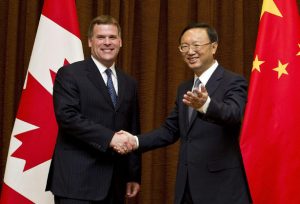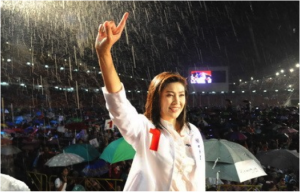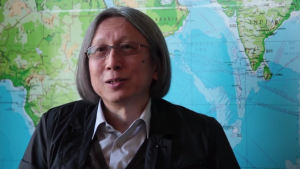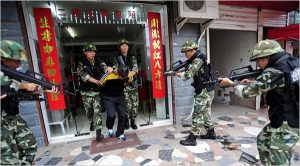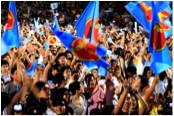Getting Global China Right – Public Fears and Conservative Policy
Memo #99 – The world is being reshaped by China’s rise, its central role in regional production networks and global value chains, its deepening influence in international institutions, and the persistence of its particular form of authoritarian capitalism. Decisions of Chinese officials, business leaders, citizens, and consumers have impact globally in a messy, multi-centric world order.
Through Taiwan is the Shortest Route between Japan and China
Memo #98 – Joint ventures between Taiwanese and Japanese firms in China survive longer than companies formed only with Japanese capital. Research shows that Japanese firms have a better chance of success in China through alliances with their Taiwanese partners. The survival rate (which measures firms or joint ventures started in the 1990s up to the year 2005) in China has been around 68 per cent when Japanese companies entered the market alone. But the rate is 10 per cent higher if they worked with Taiwanese corporations. Taiwan can play a critical role in trilateral relations and create a win-win-win environment.
Thailand Post-election Analysis: Crisis and Opportunity
Memo #97 – The highest voter turnout in history shows Thai voters still view elections as the most legitimate way to transfer power. 75 per cent of eligible voters participated in last week’s election. Pheu Thai took 40 per cent of the vote, gained 265 out of 500 seats, and together with five other parties will form a 300-seat coalition government – an impressive result for a party whose predecessors were ousted by a coup d’état in 2006, twice dissolved, and had their politicians banned from politics for five years.
Author Chan Koonchung on His Role as an Activist Public Intellectual
Memo #95 – On June 28, 2011, we published our first interview with Chan Koonchung (陈冠中), the author of the novel Shengshi-Zhongguo 2013 (盛世 – 中国 2013) or, The Fat Years. In this second installment he speaks about his role as an activist public intellectual. In 2010, he started an e-mail discussion group and NGO, Minjian China because he found that other Chinese intellectuals were not concerned with China’s impact outside of China, despite China’s role as a rising power. “Minjian” is one term for civil society. He has tried to identify scholars interested in China’s impact on the broader world, starting with Southeast Asia. He recently started a second online discussion group on China-India relations.
China’s Counterinsurgency Strategy in Tibet and Xinjiang
Memo #88 – Separatist riots in Tibet in 2008 and in Xinjiang in 2009 demonstrated that Chinese authorities may be efficient at riot control. But the protests also indicate that China has not addressed the root causes of recurring ethnic unrest and deteriorating loyalty towards the Chinese regime among Tibetans and Uyghurs.
The Shifting Role of Law in Myanmar
Memo #84 – A Myanmar court on March 29, 2011 granted bail to Australian businessman Ross Dunkley accused of assaulting and unlawfully confining a sex worker. Dunkley said he would fight the charges. “I just can’t believe there is a case,” Agence France Press quoted him as saying. “There is no witness, there is no evidence. “
Ten Years after Indonesia’s ‘Big Bang’
Memo #83 – 2011 marks a decade since the implementation of Indonesia’s democratic decentralization project (the ‘Big Bang’), the largest of its kind in the world. With the exception of Jakarta and three other provinces with special autonomy arrangements, most state powers and responsibilities were devolved to sub-provincial governments. Ten years ago, there was a nationwide reordering of the structures and processes of government and we can now evaluate the success of these policies.
Turn of Tide: Singapore’s Watershed Election 2011
Memo #82 – On May 7, 2011, 2.06 million Singaporeans cast their votes and returned the People’s Action Party (PAP) to power. Most parties would be happy with the PAP’s 60.1 per cent vote and 81 out of 87 seats. But the result was the party’s worst performance since 1963, a far cry from its 75 per cent vote share during its heydays in the 2001 general election (see Figure 1). Singaporeans were disaffected and voted two cabinet ministers and a candidate slated to be speaker of the House out of office. In an election post-mortem, both minister mentor Lee Kuan Yew and senior minister Goh Chok Tong resigned from the cabinet.
Thai-Cambodian Border Clashes – What is Fuelling them?
Memo #80 – Since the end of April 2011, fighting between the Thai and Cambodian armies along their disputed border killed 18 people, injured over 120, and displaced nearly 100,000 villagers. Since hostilities began in July 2008, border clashes have now left at least 28 dead and some 150 injured. The conflict is centred around three ancient temples built by Khmer kings nearly a thousand years ago. But most analysts contend that territory is not the driving concern, rather it is fuelled by domestic politics in both countries.
Missionaries Infiltrating North Korea: How Long Can the Hermit Kingdom Avoid Reform?
Memo #77 – On April 11, 2011, the US State Department confirmed North Korea’s intention to prosecute an American, Jun Young-su, held since November 2010 for proselytizing. Another American missionary, Aijalon Gomes, was prosecuted and released in August 2010, following the February 2010 release of missionary Robert Park. A fascinating juxtaposition emerges: while more than one thousand North Koreans risk their lives to escape the hermit kingdom each year, outsiders risk severe punishment to enter the country to preach Christianity, with little evidence that missionaries in general receive leniency.
